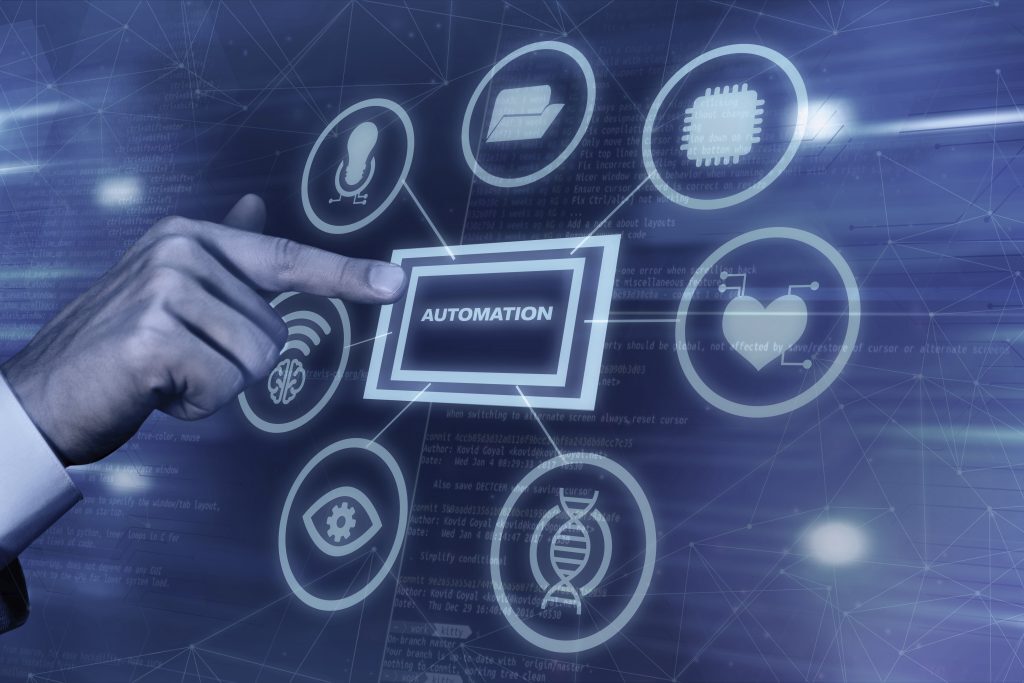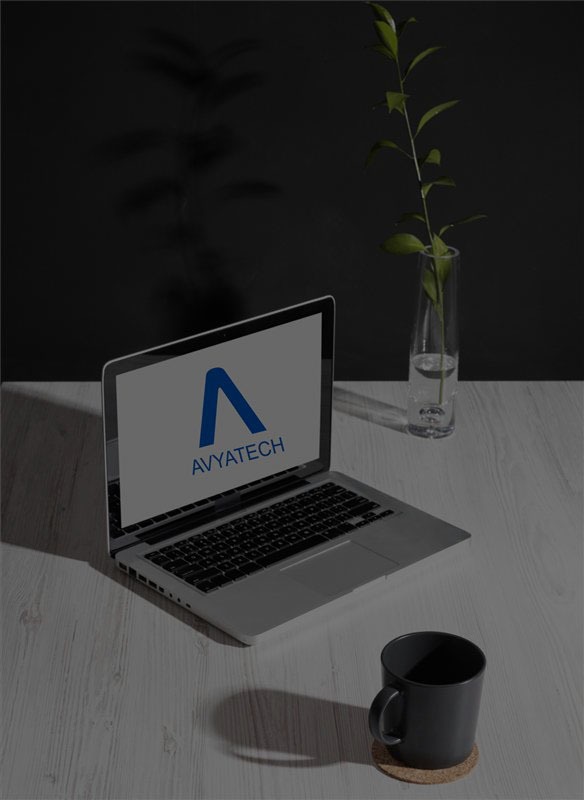Disruptive technologies and fast-changing customer preferences are making ways for risks and opportunities for the business world. Businesses of all sizes and types can’t stay competitive and perform well with legacy systems. That is why AI process automation helps companies operate faster, smarter, and more proficiently.
“By 2027, generative AI tools will be used to explain legacy business apps and create appropriate replacements, reducing modernization costs by 70%.” — Gartner Inc.
According to a Markets & Markets report on business process automation (BPA), the BPA market is about to reach $19.6 billion by 2026. It reached this new point from $9.8 billion in 2020. This blog highlights AI in process automation and its role in driving innovation across industries.
What is AI Process Automation?
AI process automation is when automation stops just “following rules” and starts understanding what it’s looking at. In practice, it blends the workflows teams already use with models that can read documents, interpret emails, and make calls based on context.
Example:
In the Accounts Department, an AI-enabled workflow reads invoices (different formats), extracts data from the right fields, checks vendor and PO data, flags mismatches, and posts entries automatically. It automates everything. That is what we call AI process automation.
Benefits of AI Process Automation
AI and process automation are transforming the ways businesses operate in the modern competitive era. The unique blend of AI and automation improves business outcomes and makes tasks faster and smarter. Here are a few advantages:
1. Increased efficiency
AI-powered systems and tools enable process builders to reduce build time from many days to a few hours.
2. Workforce productivity
With generative AI in process automation, employees can focus on high-value work. A McKinsey survey shows employees boosted their productivity and saved 60 to 70% of their time with AI.
3. Cost savings
Business leaders smartly reduce operational costs after implementing AI. A report by ThoughtSpot claims that about 44% of the 1,000 leaders saved more on costs using process automation technologies.
4. Enhanced accuracy
AI-driven automation reduces mistakes faster. It is not prone to errors like manual processes. A McKinsey report shows that AI reduces forecasting errors in supply chain management by 30% to 50%.
5. Digital transformation
AI process automation quickens digital transformation. It automates processes across business roles and functions. This way it achieves digital transformation outcomes.
From faster work to fewer mistakes and better decision-making to scalable volumes, AI gives businesses an opportunity to grow fast.
Challenges of AI Process Automation
The use of AI in process automation is highly beneficial for business enterprises. But it also comes with some hidden challenges that businesses face while implementing it. The following are the most common hurdles.
1. Integration with existing systems
Challenge: A large number of businesses still continue with legacy systems that have compatibility issues with AI tools. Such issues lead to inefficiencies and affect automation initiatives badly.
Solution: Opt for AI tools that connect endpoints effortlessly and offer end-to-end process visibility. Integrate the tools with business applications.
2. Data privacy & security concerns
Challenge: AI-driven automation counts on a big volume of sensitive data. It can pose a threat to data privacy and security concerns.
Solution: Pick an enterprise-wide platform to lower risks. Make sure the platform collects pertinent data across multiple process instances.
3. Change management
Challenge: Due to their human nature, employees don’t want to accept AI automation and resist it owing to job security concerns. This tendency stops employees from adopting AI and leads to uncertainty.
Solution: Try AI tools that support upskilling plans through courses. Here, business enterprises should promote a philosophy of continuous learning.
4. Data integrity
Challenge: Data integration is a big task when it comes to implementing any AI technology.
Solution: Build a strong data foundation. It will help businesses make informed decisions with data-driven insights. Also utilize this foundation to drive overall growth.
AI Process Automation Use Cases
Look at the prime use cases highlighting the value of AI optimization in business functions across different domains:
1. Finance & Accounting
AI business automation enhances decision-making, improves financial accuracy, and speeds up financial processes. It optimizes operational expenditures, automates approvals and policies, smoothens customer onboarding, and eases tracking.
- Capital Expenditure (CapEX)
- Operating Expense (OPEX) management
- Customer & supplier onboarding
- Travel & expense management
- Purchase requisitions
2. Human resources (HR)
AI for process automation streamlines HR functions. The smart use of AI-assisted tools by HR helps in employees’ performance assessment, documentation, training for new hires, and workforce planning.
- Performance appraisals
- Onboarding
- Talent management
3. Compliance & regulatory processes
AI in process automation lowers legal risks. AI-powered systems ensure seamless compliance management. It automates contracts, approves workflows, monitors data in real-time, and sticks to industry standards.
- Contract management
- General Data Protection Regulation (GDPR)
- Data protection
- Regulatory compliance audits
4. Innovation management
Business process automation AI augments innovation processes. It evaluates alignments, automates risk assessment, prevents redundant efforts, analyzes, competitor strategies, and ensures quality meets regulatory standards.
- Project lifecycle management
- E-vetting & tender management
- Quality & compliance management
- Document & knowledge automation
- Trend & market analysis
5. Manufacturing & supply chain
Business process automation with AI improves supply chain resilience. To do so, it prevents equipment failures, reduces downtime, optimizes inventories, enhances operations, and automates audits.
- Predictive maintenance
- Demand forecasting
- Automated logistics
- Site Inspections & compliance
6. IT & Security
The elegant use of AI for automating processes enhances security, IT operations, and asset management.
- Support ticket automation
- Device & Software tracking
- Incident management
AI Automation Trends
AI process automation is evolving at a rapid rate. It brings new opportunities for business enterprises of all sizes and types. Look at some trends that drive AI for process automation to the next stage.
AI agents in the flow
The growth of agentic AI has been exceptional. It will skyrocket in 2025. This trend is likely to continue. AI agents will transform process automation with accelerated workflow in coming years. Now, agents can take action across multiple systems.
Low-code and no-code platforms
These platforms are useful for non-technical users who are interested in building and deploying AI-driven workflows using minimal coding. A report by Grand View Research shows that the size of the global no-code AI platform market will touch USD 37.96 billion by 2033.
Conversational chatbots and AI
These days, there is a growing use of AI-oriented chatbots and virtual assistants. They are accurate, conversational, and context-aware. That is why companies are preferring AI chatbots over live chat agents.
Hyper-automation as a strategy
When it comes to end-to-end automation, hyper-automation comes into action. It integrates data analytics, AI, RPA, and process mining. Gartner predicted, by 2026, 30% of enterprises will automate about 50% of their network activities. Businesses are preferring hyper-automation over task automation to have automated workflows.
Autonomous process automation (APA)
Businesses want faster and more accurate decisions. Here, the APA helps you make decisions with minimal human intervention. It adapts fast to changing conditions in real time. Unlike traditional automation, it enhances agility and makes processes more responsive and resilient.
How to Start AI Automation Fast?
AI process automation makes business organizations act smart with increased efficiencies. But implementation of AI in your business processes needs a strategic plan. Some basic best practices of AI implementation include:
- Defining clear objectives
Identify the processes that provide you instant automation benefits (better customer experiences, workflow efficiency, lower costs, and higher accuracy).
- Selecting the right tools
Pick specific AI process automation tools that match well with your project needs.
Ensure they integrate with your existing infrastructure.
- Ensuring availability of necessary data
Go for a project with easy-to-access data.
Ensure this data is machine-readable.
You can integrate this data with other necessary tools.
- Establishing a plan for governance
Implement measures to protect systems and data.
Ensure your measures comply with applicable regulations.
Why is AvyaTech a Leader in Modern Business Automation?
AI is redefining automation by offering better accuracy and workflows to business enterprises. We, at AvyaTech, want every business to avail instant benefits of business automation. We leverage advanced AI tools and techniques to help you make real-time business decisions. We connect data, apps, and processes to offer business benefits through:
- AI agents and low-code development
- Unified platform and intelligent data mapping
- Robust connectivity and scalable architecture
- Real-time integration and process automation
FAQs
AI process automation is the implementation of AI technologies into business processes to streamline workflows and handle routine tasks. It improves efficiency and reduces time consumption and costs by automating repetitive tasks.
Business enterprises interested in implementing AI-based process automation need to choose a high-volume but painful business process that is challenging for them. Then, set three different KPIs, including cycle time, accuracy, and cost. Finally, you can ship an MVP in weeks.
When it comes to ROI, you can see early wins in 3–6 months. You will also achieve wider ROI in 12–24 months.
AI process automation offers businesses benefits of
· faster cycles
· fewer errors
· lower unit costs
· scales without linear headcount
– Finance (invoice processing, reconciliations)
– Customer ops (email/chat triage, routing)
– IT/shared services (ticket summaries, approvals)
Here, repeatable inputs and clear outcomes make gains show up quickly.



















































































